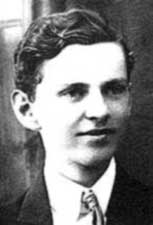
BANJA LUKA, Bosnia-Hercegovina (AFP) - During his one-day visit to the mainly Orthodox Bosnian town of Banja Luka, Pope John Paul (news - web sites) II is to beatify 20th century Roman Catholic theologian Ivan Merz in the first such ceremony in the Balkans country which prides itself on its rich multi-faith heritage.
Catholic layman Merz, who devoted his life to religious revival in neighbouring Croatia, will be beatified in a once multi-ethnic northwestern Bosnian town, today seat of the Bosnian Serb entity, which along with the Muslim-Croat federation makes up post-war Bosnia.
It is expected that the ceremony during the pope's 101st foreign trip on Sunday will be attended by between 100,000 and 150,000 Catholic pilgrims, coming from all over Bosnia and Croatia as well as from Serbia and Montenegro.
Earlier this month the 83-year-old pontiff visited predominantly Catholic Croatia on his landmark 100th trip. His following visit to Banja Luka is hoped to contribute to better tolerance for the town's small Catholic community which shrank significantly during Bosnia's 1992-95 war.
Most of Merz's work as a Catholic intellectual was done in Croatia where he was considered a "pillar of the Church" despite his short life and there are not many reminders of his life in Banja Luka where he was born in 1896 and lived until the age of 18.
Only the house, part of the railway station complex, where his father was sent to run it during the Austro-Hungarian monarchy, still exists, but it was turned into an art gallery many years ago.
The turbulent past of the Balkans country situated on the ancient borderline between western and eastern Roman empires and ruled by Ottomans for centuries made Bosnia a unique blend of Catholic and Orthodox Christian and Islamic influences.
Although the country was an example of religious tolerance throughout centuries, the 1992-95 war which at times pitted all three ethnic communities against each other had strong religious overtones.
According to a 1991 census Muslims made up 40 percent of Bosnia's population of 3.8 million, while Serbs -- mostly Orthodox -- and Croats -- mostly Catholics -- accounted for 31 and 10 percent respectively. There are no available post-war figures.
A professor of French literature, Merz taught Croatian youth principles of faith in his free time, wrote numerous articles in the Catholic press and was engaged in promoting activities of various Catholic organisations in the country.
The horrors of war he experienced on the Italian front as a soldier in World War I incited Merz, brought up in a liberal family, to turn to faith and he took the vow of celibacy as a layman.
He died in Zagreb at the age of 31 with the reputation of a saint. After he passed away the bells of Zagreb cathedral rang to announce his death, although it was a custom only for the deaths of cardinals and bishops.
After his death a number of graces granted and prayers answered at his intercession were reported.
The first big miracle recorded by the Church happened in 1930 when 25-year-old Anica Ercegovic, suffering for six years from tuberculosis, arthritis and severe rheumatism, went home cured after visiting Merz's grave and saying prayers. She died in 1985, at the age of 80.The first big miracle recorded by the Church happened in 1930 when 25-year-old Anica Ercegovic, suffering for six years from tuberculosis, arthritis and severe rheumatism, went home cured after visiting Merz's grave and saying prayers. She died in 1985, at the age of 80.
Source: http://story.news.yahoo.com/news?tmpl=story&u=/afp/20030621/wl_afp/pope_bosnia_beatify_030621060823